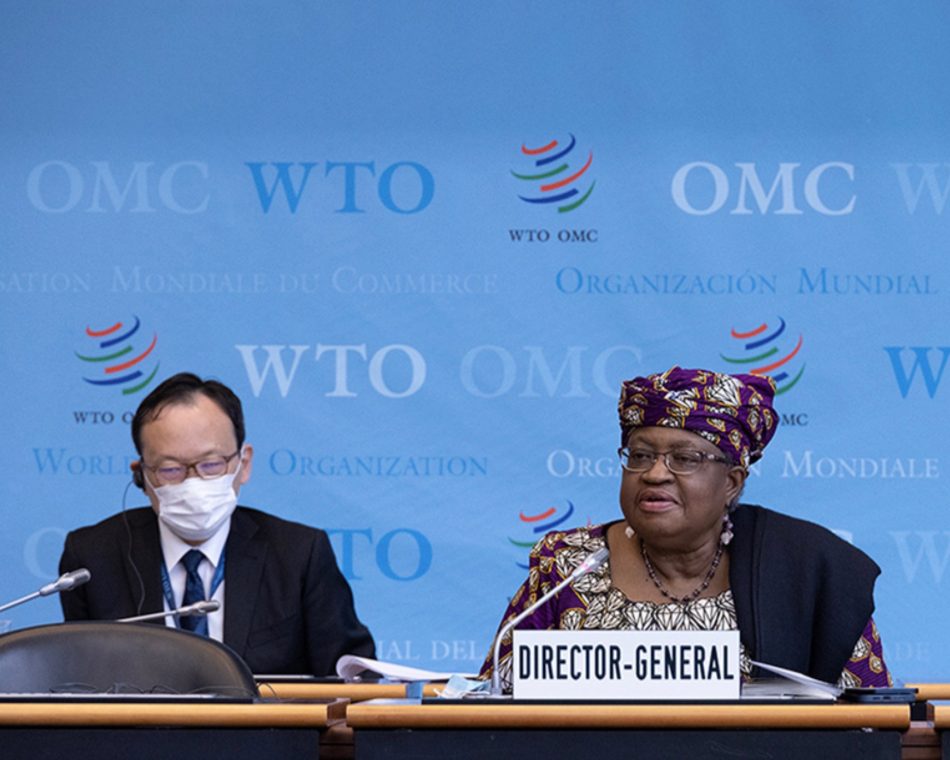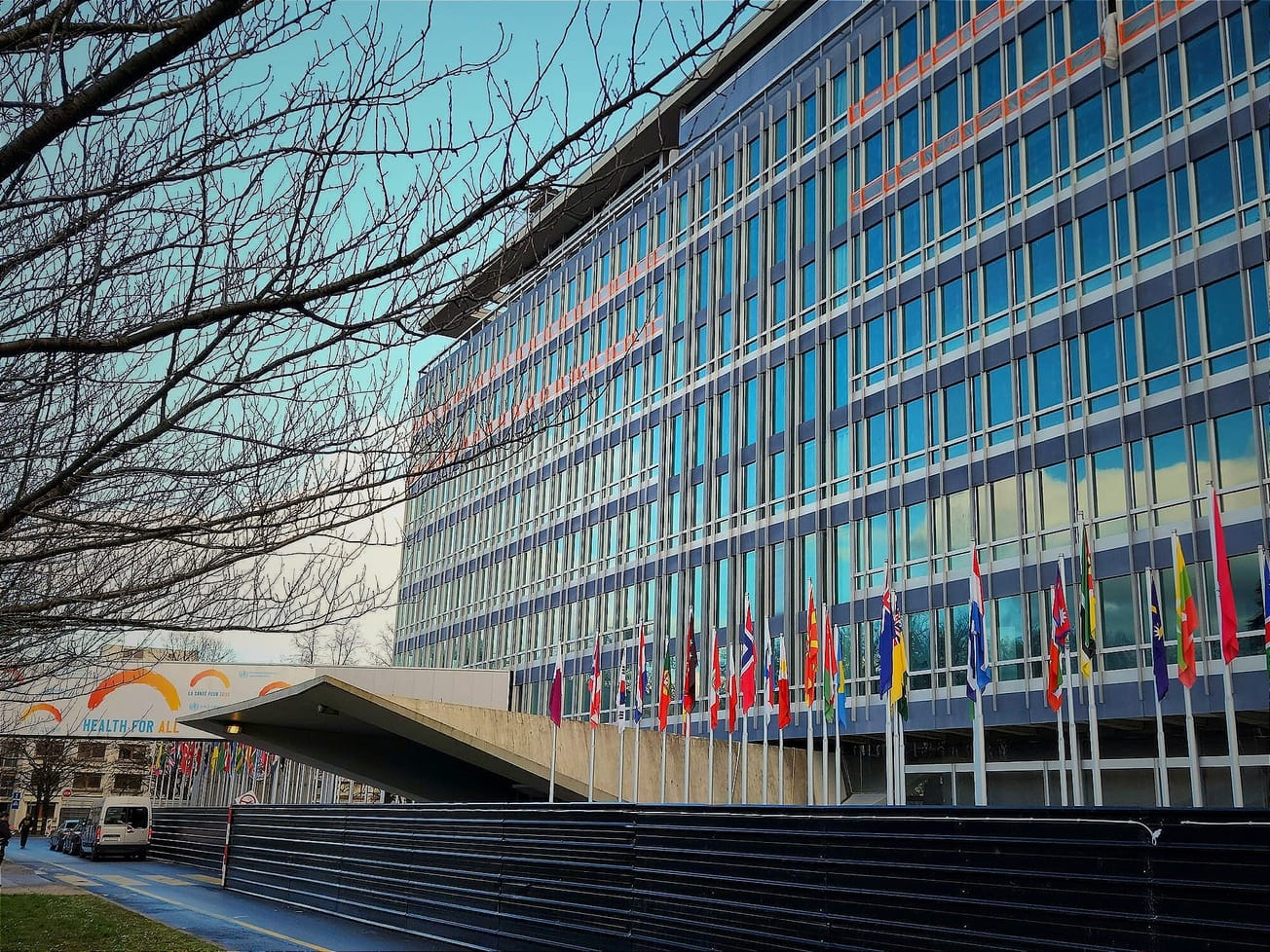WASHINGTON (AN) — U.S. President Joe Biden's administration committed to temporarily waiving vaccine patent protections, boosting efforts at the World Trade Organization to suspend intellectual property protections and speed up global vaccination campaigns that could more quickly end the coronavirus pandemic.
The administration's trade representative, Katherine Tai, announced on Wednesday the United States would support easing WTO rules on IP protections for COVID-19 vaccines and treatments just as WTO Director-General Ngozi Okonjo-Iweala met in Geneva with trade diplomats grappling with the issue.
The United States' willingness to participate in WTO waiver discussions — a reversal from last year when the former Trump administration was among the nations trying to block them — significantly raises the prospects of using the temporary waiver provision to spread COVID-19 vaccines and treatments among poorer and developing nations.
“This is a global health crisis, and the extraordinary circumstances of the COVID-19 pandemic call for extraordinary measures. The administration believes strongly in intellectual property protections, but in service of ending this pandemic, supports the waiver of those protections for COVID-19 vaccines," Tai said.
The U.S. will "actively participate in text-based negotiations" at WTO with the aim of getting as many safe and effective vaccines to as many people as fast as possible, she said. "As our vaccine supply for the American people is secured, the administration will continue to ramp up its efforts — working with the private sector and all possible partners — to expand vaccine manufacturing and distribution. It will also work to increase the raw materials needed to produce those vaccines.”
WTO's General Council and Okonjo-Iweala convened ambassadors from rich and developing nations for two days of closed-door sessions where they were weighing a proposal by South Africa and India last October for an annual waiver of parts of the 1995 TRIPS Agreement, a major intellectual property agreement.
It covers copyright and related rights for music and broadcasting; trademarks and geography, patents, industrial designs and circuit layouts; and commercial trade secrets and test data.
By issuing a waiver from any fines or sanctions, WTO would free up the ability of any nation or company to produce a vaccine if it has the recipe and ingredients. The waiver would not mandate the public disclosure of patented technologies, however, and it also may include the means for compensation.
Proponents of the waiver also pointed out that some of the companies have already reaped huge profits from vaccines that were developed with a large amount of taxpayer-funded financial backing.
The 164-nation trade organization planned a formal follow-up meeting in June. More than 100 nations have expressed their support for the waiver, but consensus is needed and most nations that are home to pharmaceutical and biotech companies have strongly resisted the proposal.
World Health Organization Director-General Tedros Adhanom Ghebreyesus said the waiver is urgently needed to end the pandemic by increasing global vaccine supplies and distributing them in poor countries.
"Those negotiations will take time," Tai acknowledged, "given the consensus-based nature of the institution and the complexity of the issues involved."
Reaching consensus will indeed be a challenge. Along with the United States, the European Union is another prominent skeptic of the WTO waiver proposal.
Europe is one of the biggest producers and markets for vaccines; two non-E.U. nations that are also home to major pharmaceuticals, Switzerland and the United Kingdom, have been similarly resistant to giving away IP even as India suffers a catastrophic pandemic surge and some African and Pacific island nations confront a dearth of vaccines.
These extraordinary times and circumstances of call for extraordinary measures.
— Ambassador Katherine Tai (@AmbassadorTai) May 5, 2021
The US supports the waiver of IP protections on COVID-19 vaccines to help end the pandemic and we’ll actively participate in @WTO negotiations to make that happen. pic.twitter.com/96ERlboZS8
Since the beginning of the pandemic, scientists have been working around the clock to develop safe and effective vaccines against #COVID19.
— IFPMA (@IFPMA) May 5, 2021
Hear about the steps we have taken to increase manufacturing capacity: https://t.co/mljnjsu5Gx pic.twitter.com/EX1Wy2bdfq
Getting to a text
Many of the wealthy Western nations, including Japan, that have resisted the WTO waiver proposal and hoarded vaccines for their own populations are compensating somewhat through support for the COVAX Facility’s distribution of vaccines to low-income and developing countries.
COVAX, co-led by WHO, Gavi, the Vaccine Alliance and the Coalition for Epidemic Preparedness Innovations, is part of a global collaboration to provide coronavirus tests, medicines and vaccines worldwide.
But the global pharmaceutical industry's trade group contends the waiver actually would weaken companies' ability to quickly produce billions of vaccine doses. Reacting to the U.S. announcement, the Geneva-based International Federation of Pharmaceutical Manufacturers & Associations, or IFPMA, called it "disappointing" and disruptive.
"We are fully aligned with the goal to ensure COVID-19 vaccines are quickly and equitably shared around the world. But, as we have consistently stated, a waiver is the simple but the wrong answer to what is a complex problem," IFPMA said.
"Waiving patents of COVID-19 vaccines will not increase production nor provide practical solutions needed to battle this global health crisis," it said. "On the contrary, it is likely to lead to disruption; while distracting from addressing the real challenges in scaling up production and distribution of COVID-19 vaccines globally: namely elimination of trade barriers, addressing bottlenecks in supply chains and scarcity of raw materials and ingredients in the supply chain, and a willingness by rich countries to start sharing doses with poor countries."
Craig Garthwaite, a professor of strategy and director of health care at Northwestern University's Kellogg School of Management, said suspending IP protections temporarily also would send the wrong message to drug makers that their inventions will have less protections when there is a big health crisis.
"That's a great system if you think this is the last pandemic we'll face," he said. "Perhaps more concerning is that waiving these patents will likely do little to actually increase vaccine supply and instead will simply weaken firms' faith in the strength of the IP system for global health crises."
The idea behind the IP waiver is to eliminate some of the barriers that developing nations face in doing their own research and development and in gaining access to some of the more affordable and timely coronavirus vaccines and treatments.
Okonjo-Iweala strongly urged nations to quickly reach agreement for the sake of saving lives and said WTO "cannot act soon enough" to broaden manufacturing capacity.
"Let me just say that the way the WTO handles this matter is critical. We need to have a sense of urgency on how we approach this issue of response to COVID-19 because the world is watching," she said. "The issue of equitable access to vaccines, diagnostics and therapeutics is both the moral and economic issue of our time."
If nations agreed, WTO would waive copyright and related rights, industrial designs, patents and protection of undisclosed information until COVID-19 vaccinations make most of the world population immune. Delegates would then review the waiver each year, until it is no longer needed.
In recent days, proponents of the TRIPS waiver have been putting together a revised text to serve as the basis of their negotiations, Okonjo-Iweala told trade diplomats.
"It is incumbent on us to move quickly to put the revised text on the table but also to begin and undertake text-based negotiations," she said. "I am firmly convinced that once we can sit down with an actual text in front of us, we shall find a pragmatic way forward, acceptable to all sides that allow the kinds of answers that our developing country members are looking at with respect to vaccines, whilst at the same time looking at research and innovation and how to protect them."








